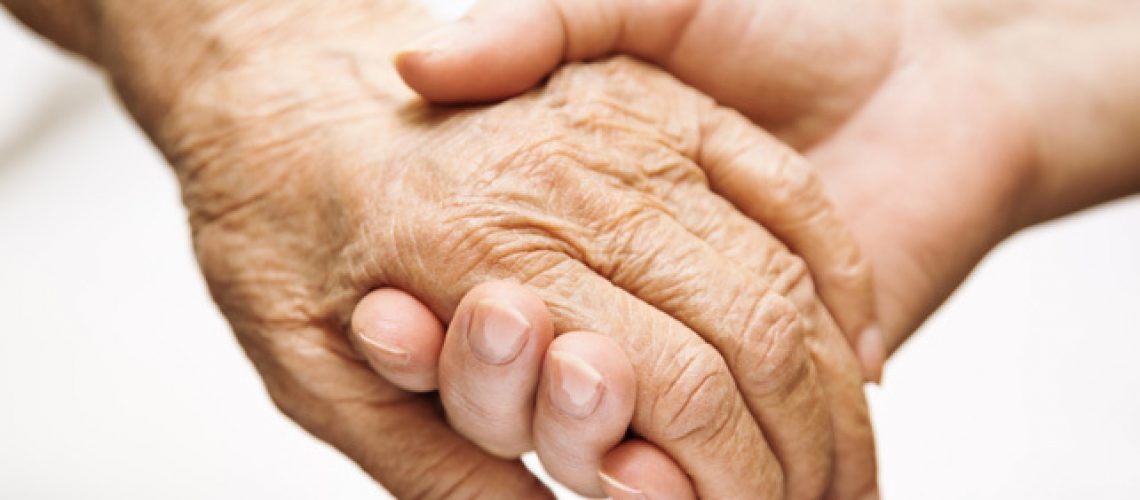Becoming human has been part of Christian theology for centuries. Orthodox Christians uphold that both God and man have roles in human salvation. God, through the incarnation of Christ, death on the cross, and rising, brought union between the divine and human. Athanasius, a 4th-century Alexandrian bishop, said Christ became human so humanity can become God. This essential point marks how all humans can be united in endeavoring for unity with all creation. This quote has helped me understand what it means to become human in my work as a Spiritual Care Practitioner. To become human means to understand that all human beings are fundamentally the same. We all belong to a common, broken humanity. We all have wounded vulnerable hearts. Each one of us needs to feel appreciated and understood; we all need help.
In my work as a Spiritual Care Practitioner, I see the human first and foremost. I work with a diverse population in the hospital from different cultural and religious backgrounds. As a Spiritual Care Practitioner, my days are mysterious and anything can happen. I recall a few months back I was paged by a nurse in the nephrology unit asking me to come quickly to talk to a patient who wanted to leave against medical advice. When I arrived at the unit and after a three-hour conversation with the patient she ended up staying and being treated for her ailments. Being human in the world of Spiritual care does not have any boundaries. Many ask me how I can visit people who are not Christian or have any religious beliefs. I respond by saying I see the human first and by seeing the human I see that all humanity belongs to the same community. One of the marvelous things about community is that it enables us to welcome and help people in a way we couldn’t as individuals. When we pool our strength and share the work and responsibility, we can welcome many people, even those in deep distress, and perhaps help them find self-confidence and inner healing. My paradigm is taken from Carl Rogers when he said the following:
“Before every session, I take a moment to remember my humanity, there is no experience that this man or woman has that I cannot share with them, no fear that I cannot understand, no suffering that I cannot care about, because I too am human. No matter how deep their wound, they do not need to be ashamed in front of me. I too am vulnerable. And because of this, I am enough. Whatever their story, they no longer need to be alone with it. This is what will allow their healing to begin”
If we begin by realizing that everyone is broken then the healing process will begin to take place. When I start to understand my brokenness and see that it can be used as a way to heal others, then everyone may be restored in the image and likeness God intended. When we look at each other we must see the beauty in all humans. If we cannot see beauty, then we cannot contribute anything to people. One does not help a person by discerning what is wrong; what is ugly; and what is distorted. Christ looked at everyone he met: the thief, the prostitute, and saw their hidden beauty and brought it to the forefront. Perhaps it is distorted, perhaps damaged and not repairable, but it was a beauty that was affirmed by Christ. Christ called out that beauty and empowered them.
Why does this approach matter in the hospital setting? Staff feels supported by the presence of the Spiritual Care Practitioner on the unit, helping to reduce compassion fatigue. Secondly, Spiritual Care Practitioners enhance patient connection with community support. Research has shown that spiritual well-being is linked to the overall quality of life. Thirdly, spiritual care can support increased health and shorten recovery periods. Religion and spirituality are cited as major sources of support and coping. Lastly, many patients want to receive spiritual care support; from simply a compassionate ear to someone providing empathic presence, to writing a referral to a community resource, to prayer support.
To be human is to be real and to be open with everyone in your life. I have worked in this profession for over five years. When I first started this vocation I asked: how can I treat, cure, or change a person? Now I would completely change that question to: how can I provide a relationship that this person may use for his/her personal growth and mine? This approach can serve everyone who is in any walk of life. No matter where you find yourself, you too can be a light in the world. To be human means we all have the potential to unpack pain, suffering, loneliness, and depression in very authentic ways. To be human is to be active and to be active is to throw ourselves into anyone’s life as needed. However, let us not put our sights too high; we do not have to be saviors of the world. We are simply human beings, enfolded in weakness, and in hope, called together to change our world one heart at a time.
__________________________________________________________________________
Bavly Kost is a Coptic Orthodox Christian who holds an MA in Theology from St. Vladimir’s Orthodox Theological Seminary, an MPS from Emmanuel College in the University of Toronto, and a BA (Hons) in History and Religious Studies and a Bed, both from York University in Toronto. He contributed an article in the second edition of The Orthodox Dilemma: Personal Reflections on Global Pan-Orthodox Christian Conciliar Unity (OCP Publications, 2017), has written for The Alexandria School Journal published by Agora University in USA, and authored a small book entitled 1st Corinthians for Teens (St. Shenouda Monastery Press, Sydney, 2015). He works as a Spiritual Care Practitioner for the Scarborough Health Network in Toronto, Canada and he is a Registered Psychotherapist in the province of Ontario.

